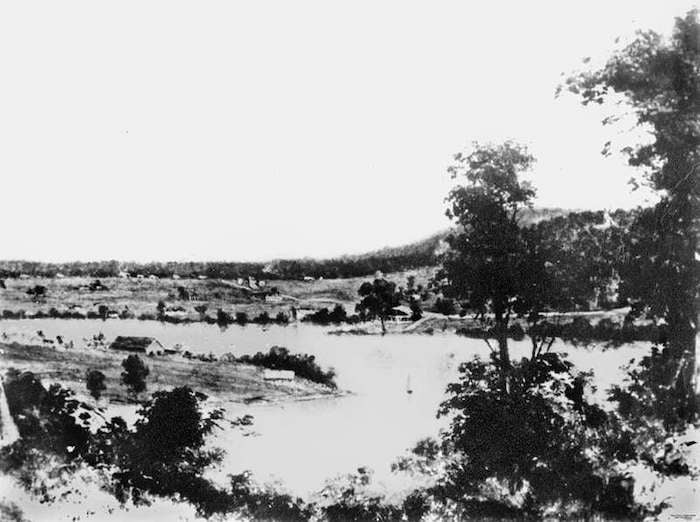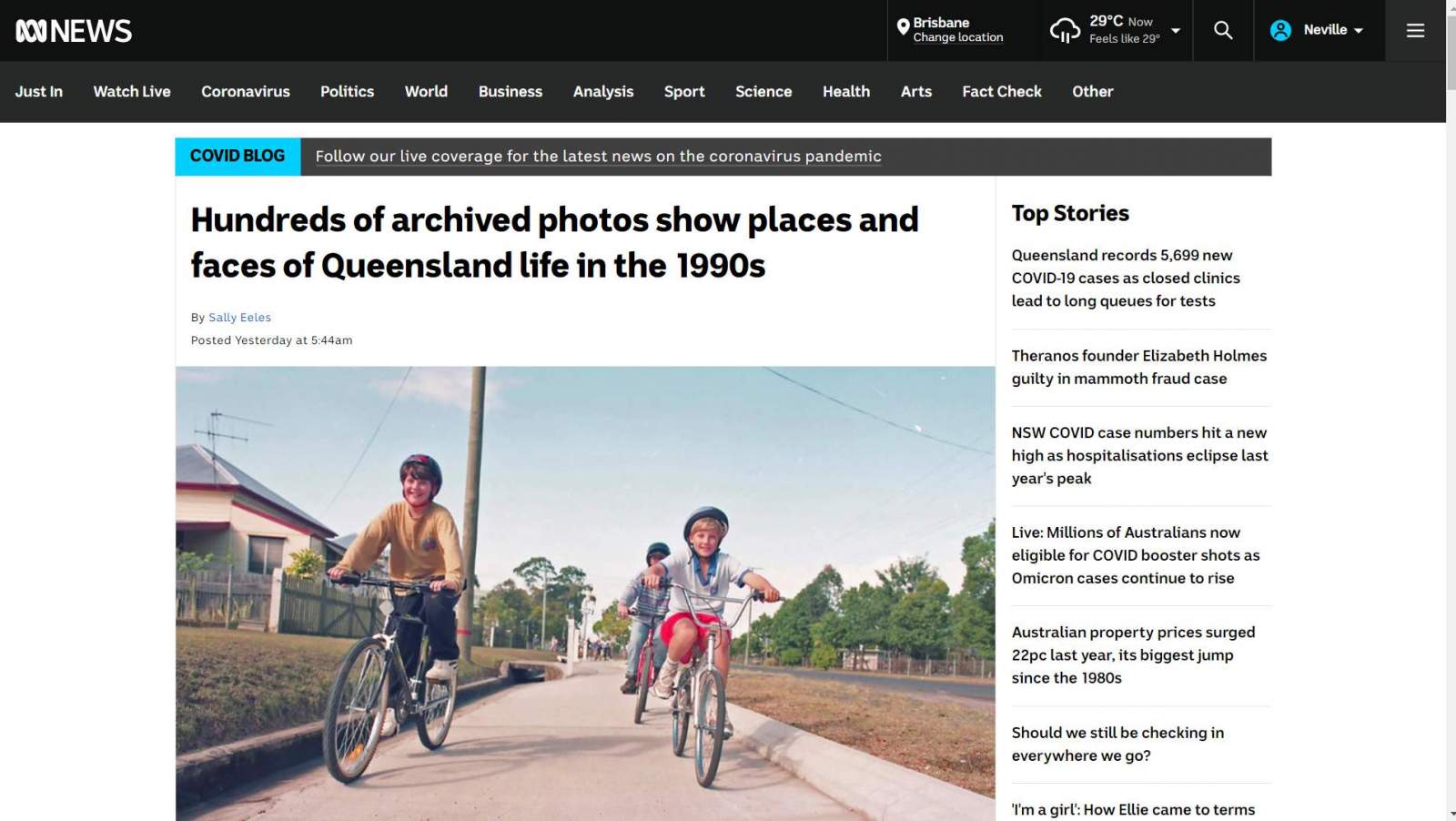The Kangaroo Point and Districts History Group recently raised questions on what Brisbane had become as a city since Conrad Martens’ image in 1851, “Brisbane Views from Bowen Terrace Looking across Kangaroo Point.” I believe that the Council and the city’s residents need to wrestle with that question intelligently. This is very different to how minds are captivated by images, and the dumbing down of unethical ‘public relations’ specialists.

Image: Conrad Martens. Brisbane Views from Bowen Terrace Looking across Kangaroo Point, 1851 (SLQ 2003).
40 years from, say, 1851 to 1891, might not seem a long time, maybe, it is merely the sense of time. By 1891 you find references to Brisbane as a City, such as ‘City Road’ but not many references more than that. Brisbane Township is a more an accurate description in 1891. Now consider 40 years for us is back to 1981, and I note that the Queensland State Archives (QSA) has just released images of the infrastructure changes in that time-period:

ABC News Story On QSA Brisbane Infrastructure Images
In the reality of history it probably took Brisbane 70 years, to around 1921, in the era when Brisbane became the Greater Brisbane Council in 1925. The question is what makes a city and the difference in appearances and characteristics of a city. Brisbane did not really have any appearance of a city when the Brisbane Grammar School (BGS) opened in 1868, but being then the capital of a new colony, technically it was beholden to be a city; beholden as a vision of what it wanted to become. By the 1880s in the second major wave of land sales and estates openings, after the 1840s, accompanied by the first suburban railway lines, we begin to see a dense small city ringed out to Annerley (Central South), more sparsely Sherwood (South-West), Toowong (West), more sparsely Ashgrove (North-West), Albion (North), Hamilton (North-East), Bulimba or Morningside (East), and Greenslopes or Holland Park (South-East).
That pattern of the suburban sprawl is maintained until the 1920s when Brisbane is certainly a city by a number of measures. I would say by the 1930s with the grand construction of City Hall, Brisbane has a recognisable cityscape. Unfortunately, the historians of the local societies still thought in the small township mentality, chatting ignorantly away about “pioneers” in the urban mythologies.
A hundred years later we must ask ourselves, do we the residents of Brisbane care? The bi-centenaries and the centenary of Brisbane City (2023-2025) is almost upon us, and the Council is showing no signs of caring.
Neville Buch
Latest posts by Neville Buch (see all)
- J. D. Vance’s Insult to America is to Propagandize American Modernism - July 26, 2024
- Why both the two majority Australian political parties get it wrong, and why Australia is following the United States into ‘Higher Education’ idiocy - July 23, 2024
- Populist Nationalism Will Not Deliver; We have been Here Before, many times… - July 20, 2024

The fable that Brisy was just a big country town was promoted by those with vested interests in Sydney & Melbourne and then adopted by successive conservative state governments from 1962-1989. Hence, the line that the 1982 Commonwealth Games “would put Brisbane on the map!”, as was said of the subsequent WORLD EXPO 88. This propoganda line is still be used to help justify the rising costs of the future 2032 Olympic Games. Greater Brisbane became a city in 1921, when all of its numerous, small municipal & shire councils amalgamated. If you need proof that Brisbane was considered a… Read more »
I was speaking to an American yesterday, She was fascinated about how many American service Personnel were around Bulimba during WWII.